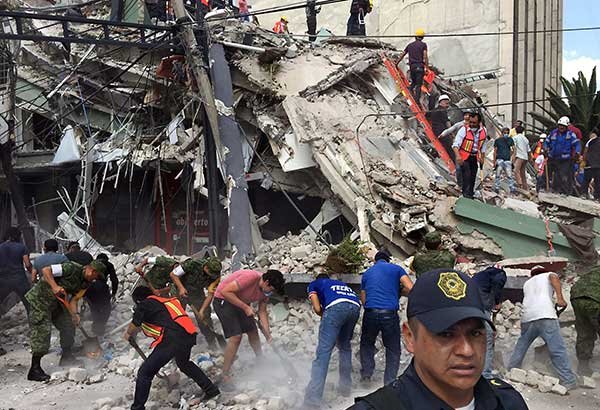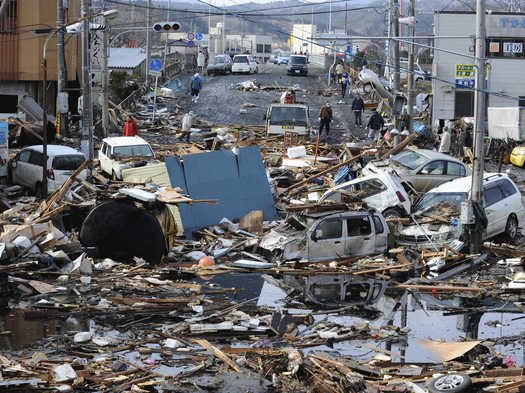Earthquake is a series of vibrations induced in the earth's crust by the abrupt rupture and rebound of rocks in which elastic strain has been slowly accumulating.
The first main earthquake hazard is the EFFECT OF GROUND SHAKING. Buildings can be damaged by the shaking itself or by the ground beneath them settling to a different level than it was before the earthquake. Buildings can even sink into the ground if soil liquefaction occurs. Liquefaction is the mixing of sand or soil and groundwater [water underground], during the shaking of a moderate or strong earthquake. When the water and soil are mixed, the ground becomes very soft and acts similar to quicksand, this makes the buildings start to lean or sink. Buildings can also be damaged by strong surface waves making the ground heave and lurch. Any buildings in the path of these surface waves can lean or tip over from all the movement. This can also cause landslides, mudslides, and avalanches on steeper hills or mountains, all of which can damage buildings and hurt people.
The second main earthquake hazard is GROUND DISPLACEMENT OR MOVEMENT OF A FAULT. If a structure [a building, road, etc] is built across a fault , the ground displacement during an earthquake could seriously damage or tip a part of that structure. After the displacement, fire can start by breaking gas lines power lines. They can be serious problem, especially if the water lines that feed the fire hydrants are broken too.
The last main earthquake hazard is FLOODING. An earthquake can break dams or levees along a river. The water from the river or the reservoir would then flood the area, damaging buildings and may be sweeping away or drowning people.
https://m.youtube.com/watch?v=haCP035HkGM


Hi! I am a robot. I just upvoted you! I found similar content that readers might be interested in:
http://www.geo.mtu.edu/UPSeis/hazards.html
thanks man for your support
Thanks for your good posts, I followed you!